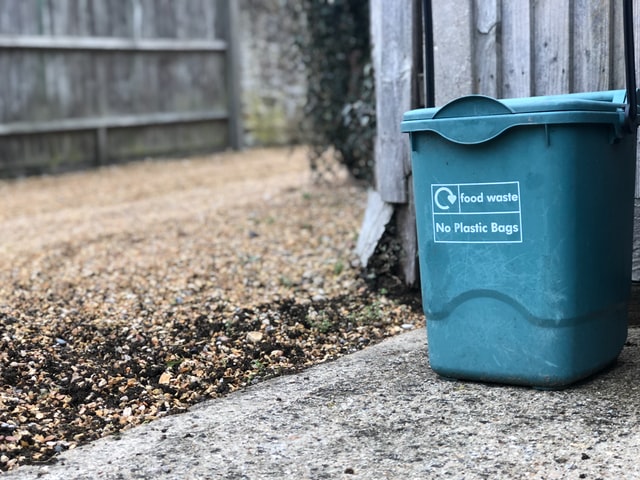An individual’s waste is a different person’s compost; the fact is that even trash is potentially useful. A law that will take effect in January 2022 will clamp down on the food waste in California to help lessen organic waste disposal in landfills. The law comes as part of an attempt to redirect tons of organic waste in three years.
As per the Sanitation Districts of Los Angeles County, the 4,000-ton daily food waste volume in the county includes not only dinner scraps but also spoiled vegetables and fruits from groceries and restaurants.
The greenhouse gas methane emerges from the process of decomposing food waste in landfills, and it is many times stronger as compared to carbon dioxide (CO2). It takes decades for a landfill to decompose the material; even if the facility is well-controlled, a part of the greenhouse gas would leak into the air. In the anaerobic digester of a local wastewater treatment plant, the decomposition process happens in some weeks without any methane leak. Digesting food waste allows reducing the greenhouse gas types that exist in the atmosphere and that contribute to climate change.
SB 1383 is a draft law that requires jurisdictions, including cities, to divert the said waste out of landfills. It requires the redirection of 20% or more of the food items that are edible and are being discarded, to people who need those products. It is permissible to divert the rest of the waste to anaerobic digestion or composting. In January 2022, California plans on starting to enforce the requirements.
The bill requires Californians to deposit unused food into green trash containers for leaves and garden trimmings, versus the landfill residue that ultimately goes to black trash cans. Some of those unused food items are eggshells, coffee grounds, and potato peels.
The process for Tier One participants starts in 2022 as well as will monitor food distributors, foodservice providers, wholesale food sellers, supermarkets and groceries. By 2024, recycling proof for restaurants, health facilities, hotels, event facilities and large venues will be part of the process.
According to Replate Chief Executive Officer and Founder Maen Mahfoud, the entire world encounters the same issue with regard to food waste. Replate is a company that directs businesses such as supermarkets and chain restaurants with communities needing food items such as whole foods or chipotle to areas that face food insecurity. The communities are often non-profit organizations like shelters, soup kitchens, senior centers and youth program locations that can use the excess food.
Mahfoud stated that everything that people do in the US concerns food. Holidays in the US are all about food. Americans head out and consume food. Mahfoud described it as an abundance of culture as well as a go home or big lifestyle. Saying that celebrating abundance is great, Mahfoud encouraged people to try to discover ways of mitigating the waste.
So, which are the ways to help cut down the waste from the ground up? Mahfoud does not go out to shop for food when he is hungry, as a religious move. Perhaps it explains why the public organization that oversees the mandate, namely CalRecycle, has already consulted Mahfoud. He said that when one feels hungry when shopping, they often buy too much since they are considering two dinners rather than one.
Mahfoud warns people to avoid falling victim to information on food containers showing that it is perhaps unsafe to consume food after a particular date. Mahfoud underlined the need for better labels that let customers know what is still edible despite a drop in the quality of taste or what is safe to eat. You can eat a food item that comes with a ‘best if used by’ date after the date, even as it becomes less fresh by then. Just because it is not as fresh as possible, does not mean the food item should be discarded.
Milk and egg are two of those food items, which can be safe to eat after their ‘best by’ dates. It is just that the product is unlikely to be fresh in terms of its flavor. Discover ways to make soups and other dishes with the extra food. Freeze half-cut onions or jalapenos and use those products later. Freeze overripe bananas to allow for their use as an ice cream raw material.
As for Mahfoud, many people use three refrigerators, including one at the garage for all kinds of food items, many of which they abandon. They often buy food in large quantities from large retail establishments, such as a Walmart store, to stock those up. However, for Mahfoud, a better approach is to buy enough fresh vegetables and fruits from a small grocery store.
Mahfoud encouraged people to shop for smaller quantities of grocery products so that they can measure the levels that they require. You may have a change in your appetite and decisions tomorrow, so Mahfoud does not recommend storing large levels of food for later use. It means that shopping for food when the need arises is a better move than making big purchases weekly. In a few days, you are likely to have an appetite for a different product, which can contribute to surplus food.
Mahfoud recommends not only storing food scraps in the freezer up to their collection day but also including them in the garden waste. Mahfoud also suggests freezing products such as vegetable scraps and herbs and using those later for stocks, stews and soups.
